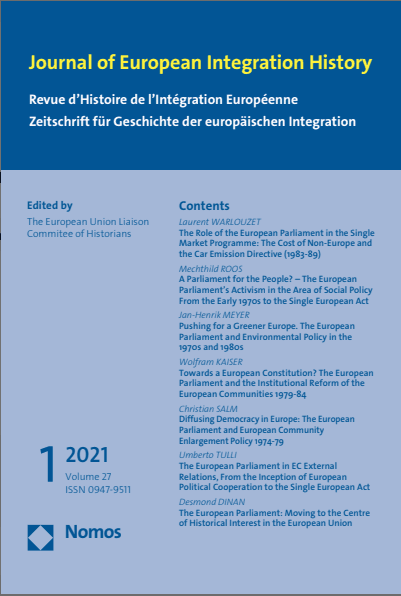Pushing for a Greener Europe. The European Parliament and Environmental Policy in the 1970s and 1980s
Abstract
The European Parliament (EP) has long been derided as a powerless talking shop, notably before the 1979 elections and the granting of new co-legislative powers with the Single European Act. This article argues instead that already in the 1970s and early 1980s, the EP was a decisive player not only in initiating, but also in defining – and refining – European policy. Drawing on the case of the nascent environmental policy, the analysis demonstrates how the EP, its committees and members (MEPs), skilfully utilised the limited range of instruments available to them. In the early 1970s, the EP pushed for the inclusion of environmental policy into the EC policy portfolio and tried to influence its contents. In the early 1980s, after a decade of environmental legislation, the EP was an important advocate of making the already existing environmental law work and of adding new European laws. Their arguments and practices illustrate that MEPs were clearly aware of the limits but also of the opportunities the EC institutional system provided. Before as well as after direct elections, the EP exploited environmental scandals in the European public sphere – Rhine pollution, Seveso – to push for a greener, more environmentally friendly Europe. In a federalist spirit, the EP pursued institutional objectives at the same time: the strengthening of EC-level policy making and legal instruments, along with its own self-strengthening.
Autor*innen
Meyer, Jan-Henrik
Quelleninformation
Titel
Pushing for a Greener Europe. The European Parliament and Environmental Policy in the 1970s and 1980s
Band 27 (1)
Erscheinungsjahr
2021
Verlag
Nomos - Baden Baden
Seiten
57-78
Dokumenttyp
Zeitschriftenaufsatz